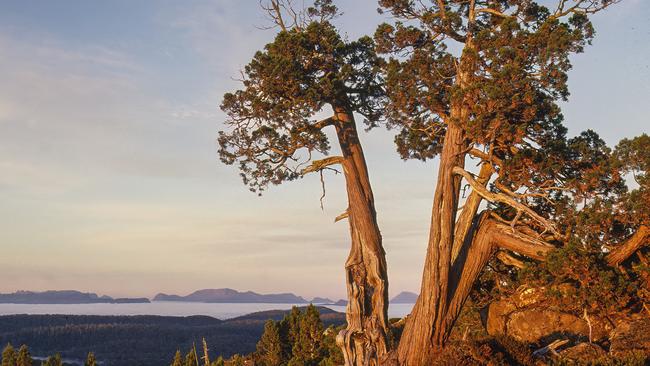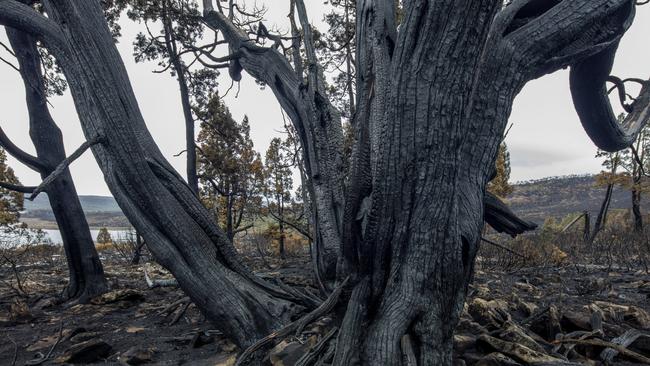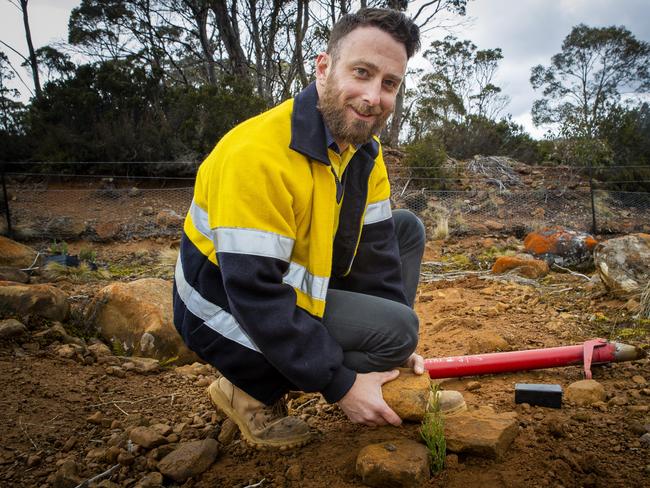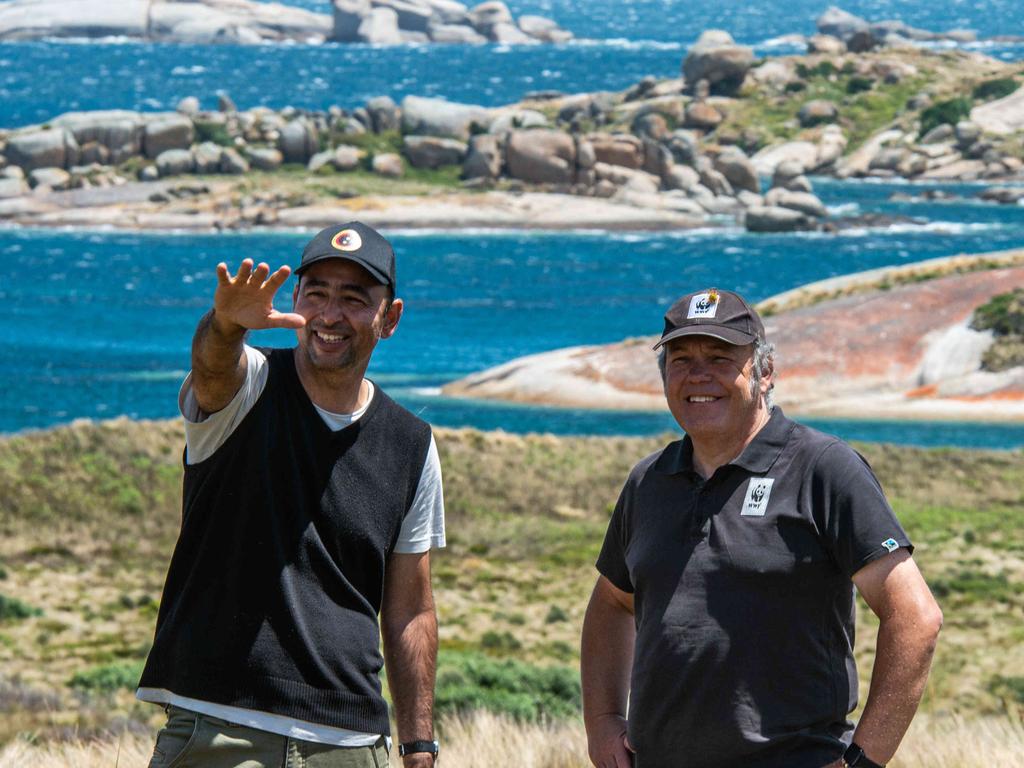Tasmanian experiment has hopes high for return of lost pencil pines
As intense bushfires burn plants that usually escape fire, should Australians accept their permanent loss – or can we intervene? An experiment in Tasmania’s high country is seeking answers.

The lost pines of Tasmania’s alpine wilderness are a sign of the times – and of dilemmas to come.
In 2016, extensive and intensive bushfires sparked by dry lightning torched fire-sensitive landscapes and plants across alpine areas of the Tasmanian Wilderness World Heritage Area.
Gondwana-era species unaccustomed to fire and unable to recover from it were destroyed, notably significant strands of pencil pines 500 to 1000 years old.
The despair was palpable. This unique, ancient species – dating back 150 million years – is an iconic feature of the TWWHA and there were fears its range would be permanently reduced.

Now an ambitious, first-of-its-kind project is testing whether these slow-growing sentinels of the high country can be returned to their globally treasured landscape.
About 1500 seedlings, raised in a nursery, have been planted around one of the worst impacted areas, Lake Mackenzie, in the state’s north, with a further 500 to be added next autumn. It is the start of a multi-generational journey, given it takes pencil pines 1200 years to reach maturity.
“I’d love to be back in the halcyon days of (habitat) restoration, when you could just stick 1000 plants in the ground, pat yourself on the back and win a sustainability award,” Adam D’Andrea, Hydro Tasmania senior environmental scientist, said.
“But these days the climate is changing so drastically and so quickly that putting them in the ground is the easy part. Now we’re monitoring and trying to work out how we keep them alive.”
This means using guards to protect seedlings from browsing animals (wallabies, feral deer and rabbits); providing vegetation litter to ward off frost; and making careful changes to the landscape to keep them moist.
“We are doing a lot of monitoring for the species in terms of is the rain going to soak into the ground and benefit the species — or just run off because there’s not much top soil left?” Mr D’Andrea said.
“We are starting to shape the landscape a little, in disturbed areas, to capture rain. It’s critical.”
Hydro Tasmania, as a significant land manager, is aiming to rehabilitate 30 degraded sites by 2030. Its Lake Mackenzie pencil pine project – assisted by Habitat Plants and University of Tasmania – is just one but it is one that raises significant questions, with national implications.

As more intense bushfires burn plants that usually escape fire and can’t recover from it, should Australians accept their permanent loss or can and should we intervene? And is it still wilderness if key plant species are “gardened” by man?
Mr D’Andrea said rapid climate change in alpine areas justified a hands-on approach.
“I don’t subscribe to the idea of wilderness anymore,” he said.
“Aboriginal people have been modifying the landscape for 60,000 years. Species are being severely impacted by a changing climate. The environment … isn’t going to recover on its own. It needs a lot of help.”






To join the conversation, please log in. Don't have an account? Register
Join the conversation, you are commenting as Logout